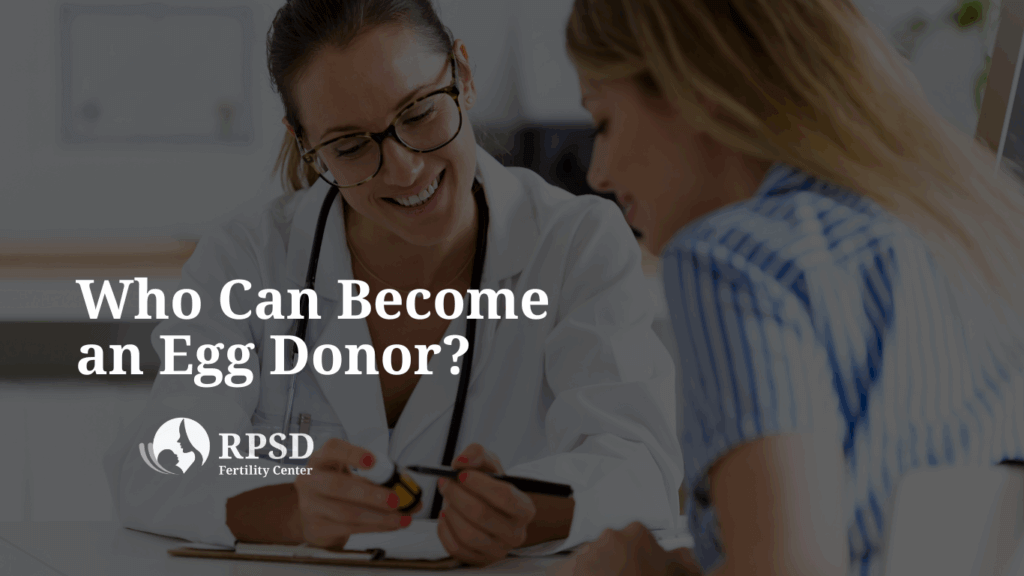
Egg donation is an extraordinary act of generosity. At Reproductive Partners Fertility Center – San Diego (RPSD), our egg donor program connects compassionate donors with intended parents who need help building their families. Egg donation allows individuals and couples experiencing infertility to experience the joy of pregnancy and parenthood.
This guide explains exactly who can become an egg donor, the requirements for egg donation, and what to expect when donating eggs at a leading San Diego fertility clinic.
Every donor has a unique motivation. Some are inspired by a personal connection to infertility, while others simply want to make a difference. Egg donors at RPSD also receive fair egg donor compensation for their time and effort—but most describe the emotional reward of helping someone create a family as truly priceless.
To protect everyone involved, egg donation programs follow medical, psychological, and genetic standards. These ensure the health of both the donor and the future baby. At RPSD, we carefully screen all potential donors to confirm they meet the following egg donor qualifications:
Egg donors complete a thorough medical evaluation that includes:
Because egg donation is a deeply personal experience, every potential donor meets with a licensed mental health professional. This confidential conversation ensures you feel informed, emotionally ready, and supported throughout your egg donor journey.
After you’re approved as a donor, our San Diego fertility specialists and donor coordinators guide you through each step of the process:
Throughout the process, our RPSD team prioritizes your safety, comfort, and well-being.
Reproductive Partners Fertility Center – San Diego is one of the region’s most trusted and experienced fertility centers, with an on-site, CAP-accredited embryology lab and nationally recognized physicians.
Learn more about egg donation with Reproductive Partners Fertility Center—where science, compassion, and hope come together to create families.
Our skilled fertility specialists are here to help. Contact us today and let’s discuss the next phase of your fertility journey.
Our skilled fertility specialists are here to help. Contact us today and let’s discuss the next phase of your fertility journey.